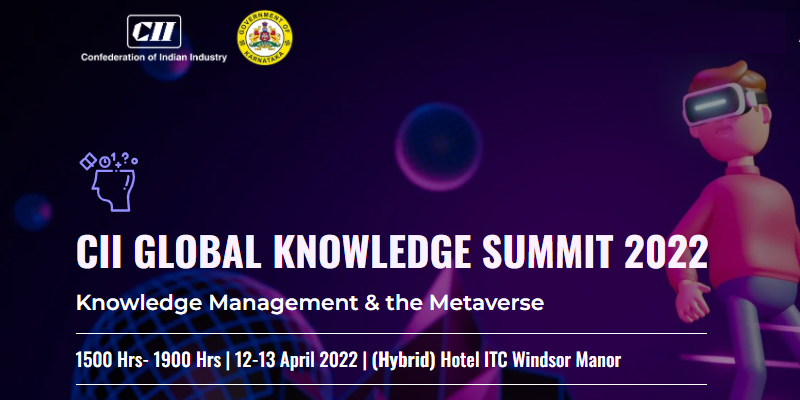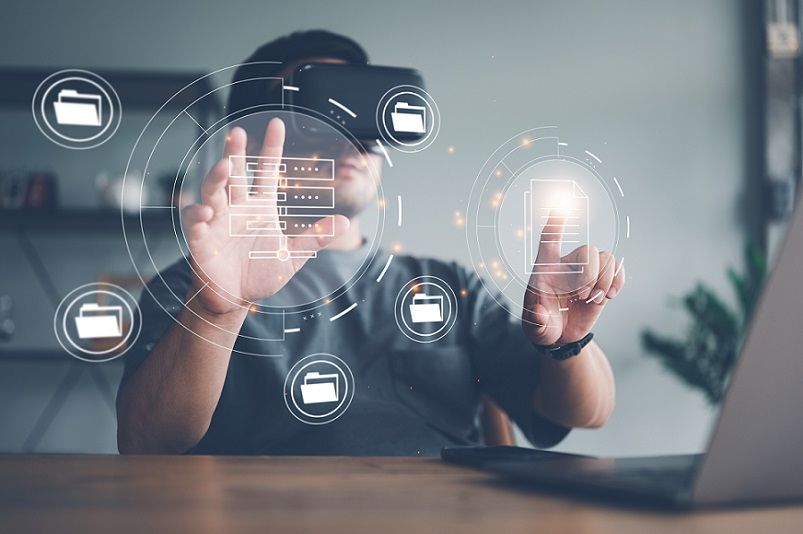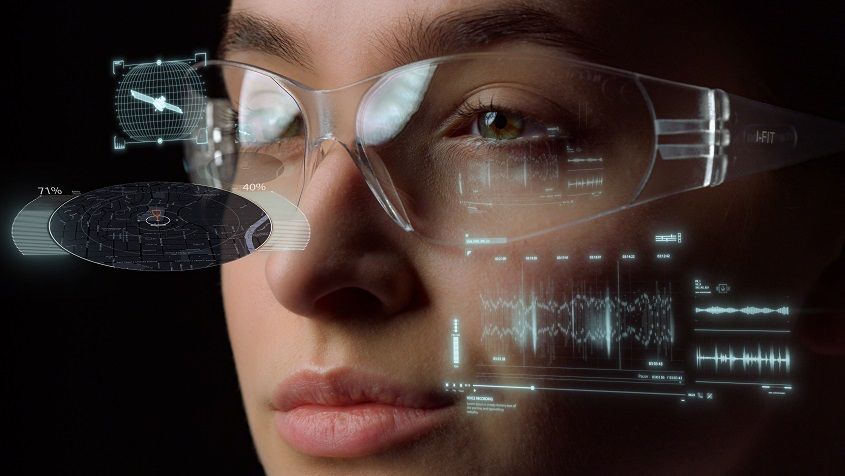Zeba Khan is Founder and CEO of Xenvis Solutions, a startup offering visualisation solutions across automotive, energy, education and healthcare sectors. This includes AR and VR for use cases such as remote assistance, digital workflows, training, and upskilling. She was earlier Technical Director at Meher Advanced Materials, and is a graduate of PES University.
Zeba is also speaking at CII’s upcoming annual Global Knowledge Summit. The 17th edition of the summit will be held in a hybrid format in Bengaluru and online on April 12-13, with the theme of Knowledge Management and the Metaverse.
As media partner for the Global Knowledge Summit, see YourStory’s preview article of the 2022 edition here, and coverage of the editions from 2021, 2020 and 2019.
In this chat with YourStory, Zeba talks about immersive media, metaverse trends, and the India opportunity.

Edited excerpts of the interview:
YourStory [YS]: Immersive media and blockchain have been around for a while – what is new about the metaverse concept? How would you demystify the hype and misconceptions around it?
Zeba Khan [ZK]: Immersive media allows viewers to experience digital content more interactively, and as the name suggests – in a more “immersive” way. For example, instead of just viewing a video, immersive media provides an environment which viewers can step into and interact with the content.
A blockchain is a decentralised public immutable ledger of transactions across a network. Simply put, it is a system of recording information in a way that makes it almost impossible to alter or delete.
The metaverse is a more comprehensive and complex concept. It can be imagined as a simulated digital world that uses multiple technologies such as Extended Reality (XR), AI and blockchain, along with immersive media, social media, remote collaboration, and gaming concepts.
Together, they create virtual experiences where users can interact and transact with each other in real-time as they would in the physical world. It is a shared persistent digital world and interoperable with the real physical world.
The Metaverse is still an evolving concept. Organisations have their own vision of what it can be and how it will be used. What is clear is that it will be a new internet experience where we can create our digital avatars, remotely meet people, visit other locations, socialise, attend events, collaborate, learn, and share knowledge like never before.

[YS]: In the context of organisational learning and knowledge assets, what contributions does the metaverse make?
[ZK]: Knowledge assets will become more diverse and accessible in the Metaverse. Knowledge creation, management and transfer will be more organised, transparent and secure.
Assets that are limited to text, images and videos typically viewed in 2D formats will become more visually representative, real-time and three dimensional in the Metaverse.
[YS]: What are the most innovative applications you have seen in the metaverse?
[ZK]: Here are some of the most innovative Metaverse applications I’ve come across.
1. Metaverse concerts. Artists can perform from any location and the audience can be part of the experience from any other location in the world. Metaverse concert-goers can create their digital avatars and enjoy the concert as an immersive experience, interact with other people and purchase digital merchandise. Concerts in the Metaverse will be more immersive and creative since there are no physical limitations. The same concept can be extended to live sports events and re-imagining of iconic moments in history.
2. Enterprise training in the metaverse. Manufacturers can leverage the remote collaboration and immersive simulation advantages of the Metaverse to train employees on new equipment and procedures, preventing errors, accidents or equipment damage. An engaging virtual environment can be provided to employees to learn, acquire and safely practice new skills in collaboration with other peers.

[YS]: How is Xenvis leveraging the metaverse – for itself, and for its clients?
[ZK]: At Xenvis, we are focusing on metaverse use-cases for enterprises. We are building solutions for use-cases that have immense utility value.
This includes solving real world issues, making businesses more efficient, reducing costs and connecting people in a way that hasn’t been done before.
[YS]: How can large firms and startups collaborate for mutual benefit in the metaverse opportunity?
[ZK]: There will be space for everyone in the Metaverse.
Large firms will drive the development of platforms and delivery mediums (hardware). Startups will play a major role in the disruptive core technologies and in content creation. This will present unique collaboration opportunities to build digital assets in the metaverse.
[YS]: What are three key emerging trends in the metaverse frontier?
[ZK]: Three key emerging trends in the metaverse are: mainstreaming real-time interaction in 3D virtual spaces, Web3, and brain-computer interfaces.

[YS]: What are India’s unique opportunities, strengths and challenges in the metaverse space?
[ZK]: India has the advantage of having people with sharp technical skills who also have a creative mindset.
Indian companies will play an important role in building and shaping the Metaverse. India will also be one of the largest markets with a significant number of metaverse consumers for a variety of use-cases including entertainment, media, tourism, remote collaboration, and more.
The challenge will be to deal with evolving regulations on topics such as cryptocurrency, NFTs, decentralisation, and digital assets.
Edited by Kanishk Singh


